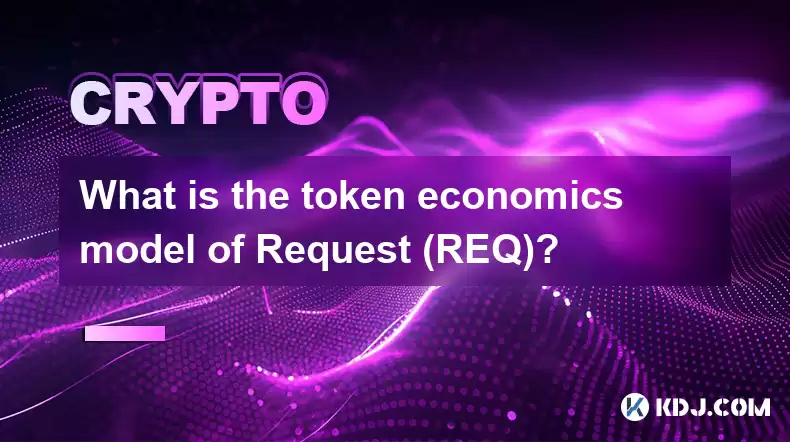-
 Bitcoin
Bitcoin $117800
0.49% -
 Ethereum
Ethereum $4432
0.55% -
 XRP
XRP $3.106
1.07% -
 Tether USDt
Tether USDt $1.001
0.01% -
 BNB
BNB $835.8
1.74% -
 Solana
Solana $189.1
2.72% -
 USDC
USDC $0.9999
-0.01% -
 Dogecoin
Dogecoin $0.2302
3.65% -
 TRON
TRON $0.3485
-0.69% -
 Cardano
Cardano $0.9212
-0.91% -
 Hyperliquid
Hyperliquid $46.97
1.45% -
 Chainlink
Chainlink $22.77
5.61% -
 Stellar
Stellar $0.4284
0.82% -
 Sui
Sui $3.766
2.82% -
 Bitcoin Cash
Bitcoin Cash $583.5
-0.82% -
 Ethena USDe
Ethena USDe $1.001
0.03% -
 Hedera
Hedera $0.2512
2.78% -
 Avalanche
Avalanche $24.18
2.27% -
 Litecoin
Litecoin $120.2
2.10% -
 Toncoin
Toncoin $3.450
1.96% -
 UNUS SED LEO
UNUS SED LEO $9.412
-0.92% -
 Shiba Inu
Shiba Inu $0.00001298
2.35% -
 Uniswap
Uniswap $10.99
3.75% -
 Polkadot
Polkadot $3.962
3.09% -
 Dai
Dai $1.000
0.00% -
 Bitget Token
Bitget Token $4.643
1.38% -
 Cronos
Cronos $0.1511
-0.08% -
 Ethena
Ethena $0.7246
3.18% -
 Monero
Monero $254.9
7.90% -
 Pepe
Pepe $0.00001100
3.32%
What is the token economics model of Request (REQ)?
The Request Network's REQ token serves as the backbone of its ecosystem, enabling payment requests and invoices, dispute resolution, network fees, and governance participation, capturing value through a unique token economics model.
Dec 26, 2024 at 04:23 am

Key Points
- Understanding the Token Economics Model of Request (REQ)
- Exploring the Token Distribution and Allocation
- Analyzing the Token Utility and Use Cases
- Examining the Token Supply and Inflationary/Deflationary Mechanisms
- Discussing the Token Value Capture and Economic Incentives
Token Economics Model of Request (REQ)
The Request Network (REQ) is a blockchain-based decentralized platform that aims to revolutionize payment requests and invoices in the business world. At the core of the Request Network is its native token, REQ, which plays a crucial role in the ecosystem's token economics model.
Token Distribution and Allocation
The REQ token was initially distributed through a public token sale in 2017, where a total of 990 million tokens were sold, representing 60% of the total supply. The remaining 40% (610 million tokens) were allocated as follows:
- 10% (90 million tokens) - Reserved for the Request Network team and future development
- 20% (180 million tokens) - Allocated to advisors and strategic partners
- 10% (90 million tokens) - Designated for a liquidity pool to facilitate market trading
Token Utility and Use Cases
REQ tokens have multiple use cases within the Request Network ecosystem:
- Payment Requests and Invoices: Businesses can utilize REQ to issue payment requests and invoices, creating a secure and transparent record on the blockchain.
- Dispute Resolution: In the event of payment disputes, REQ can be used as a stake to initiate a decentralized arbitration process.
- Network Fees: Users pay transaction fees in REQ when interacting with the Request Network, supporting the platform's operation and maintenance.
- Governance: REQ holders have the right to participate in the governance of the Request Network through voting on proposals.
Token Supply and Inflationary/Deflationary Mechanisms
The total supply of REQ tokens is capped at 1.5 billion. There are currently no inflationary or deflationary mechanisms in place, meaning the token supply remains constant. However, the Request Network team has expressed intentions to implement a mechanism that would reduce the circulating supply of REQ over time.
Token Value Capture and Economic Incentives
The REQ token is positioned to capture value through its essential role in the Request Network ecosystem:
- Gas Fees: Users pay transaction fees in REQ, generating revenue for the network.
- Stake Value: REQ is used as a stake for dispute resolution, providing incentives for users to hold tokens.
- Network Participation: REQ holders receive voting rights, giving them a say in the platform's governance and future development.
FAQs on Token Economics of Request (REQ)
What is the total supply of REQ tokens?
- The total supply is capped at 1.5 billion tokens.
How were REQ tokens initially distributed?
- Through a public token sale in 2017, accounting for 60% of the total supply.
What are the primary use cases of REQ tokens?
- Payment requests, dispute resolution, network fees, and governance.
Are there any inflationary or deflationary mechanisms for REQ?
- Currently no, but the Request Network team has expressed plans to implement a mechanism to reduce the circulating supply over time.
Does REQ have intrinsic value?
- The value of REQ is derived from its utility within the Request Network ecosystem and its potential for value capture through network fees, stake value, and governance participation.
Disclaimer:info@kdj.com
The information provided is not trading advice. kdj.com does not assume any responsibility for any investments made based on the information provided in this article. Cryptocurrencies are highly volatile and it is highly recommended that you invest with caution after thorough research!
If you believe that the content used on this website infringes your copyright, please contact us immediately (info@kdj.com) and we will delete it promptly.
- Kazakhstan's Crypto Leap: Bitcoin ETF and Central Asia's Digital Finance Future
- 2025-08-13 12:45:19
- BlockDAG Presale Blazes Past $371M: Fundraising Frenzy Fuels Crypto Sensation
- 2025-08-13 13:05:21
- Meme Coins: Chasing the 2025 Surge – Which Will Moonshot?
- 2025-08-13 10:25:23
- Bitcoin's Wild Ride: Rally, Pullback, and What's Next
- 2025-08-13 10:25:23
- Bitcoin, Bitmax, and Institutional Demand: A New Era of Crypto Investment
- 2025-08-13 10:45:12
- Solana, ROAM, and Airdrops: What's the Buzz in 2025?
- 2025-08-13 11:35:13
Related knowledge

How to purchase Aragon (ANT)?
Aug 09,2025 at 11:56pm
Understanding Aragon (ANT) and Its PurposeAragon (ANT) is a decentralized governance token that powers the Aragon Network, a platform built on the Eth...

Where to trade Band Protocol (BAND)?
Aug 10,2025 at 11:36pm
Understanding the Role of Private Keys in Cryptocurrency WalletsIn the world of cryptocurrency, a private key is one of the most critical components o...

What is the most secure way to buy Ocean Protocol (OCEAN)?
Aug 10,2025 at 01:01pm
Understanding Ocean Protocol (OCEAN) and Its EcosystemOcean Protocol (OCEAN) is a decentralized data exchange platform built on blockchain technology,...

How to invest in Kyber Network Crystal v2 (KNC)?
Aug 12,2025 at 05:21pm
Understanding Kyber Network Crystal v2 (KNC)Kyber Network is a decentralized liquidity hub built on the Ethereum blockchain that enables instant token...

Where can I buy UMA (UMA)?
Aug 07,2025 at 06:42pm
Understanding UMA and Its Role in Decentralized FinanceUMA (Universal Market Access) is an Ethereum-based decentralized finance (DeFi) protocol design...

How to sell my Ren (REN) tokens?
Aug 13,2025 at 11:35am
Understanding REN Tokens and Their Role in Decentralized FinanceREN is an ERC-20 token that powers the Ren protocol, a decentralized interoperability ...

How to purchase Aragon (ANT)?
Aug 09,2025 at 11:56pm
Understanding Aragon (ANT) and Its PurposeAragon (ANT) is a decentralized governance token that powers the Aragon Network, a platform built on the Eth...

Where to trade Band Protocol (BAND)?
Aug 10,2025 at 11:36pm
Understanding the Role of Private Keys in Cryptocurrency WalletsIn the world of cryptocurrency, a private key is one of the most critical components o...

What is the most secure way to buy Ocean Protocol (OCEAN)?
Aug 10,2025 at 01:01pm
Understanding Ocean Protocol (OCEAN) and Its EcosystemOcean Protocol (OCEAN) is a decentralized data exchange platform built on blockchain technology,...

How to invest in Kyber Network Crystal v2 (KNC)?
Aug 12,2025 at 05:21pm
Understanding Kyber Network Crystal v2 (KNC)Kyber Network is a decentralized liquidity hub built on the Ethereum blockchain that enables instant token...

Where can I buy UMA (UMA)?
Aug 07,2025 at 06:42pm
Understanding UMA and Its Role in Decentralized FinanceUMA (Universal Market Access) is an Ethereum-based decentralized finance (DeFi) protocol design...

How to sell my Ren (REN) tokens?
Aug 13,2025 at 11:35am
Understanding REN Tokens and Their Role in Decentralized FinanceREN is an ERC-20 token that powers the Ren protocol, a decentralized interoperability ...
See all articles

























































































